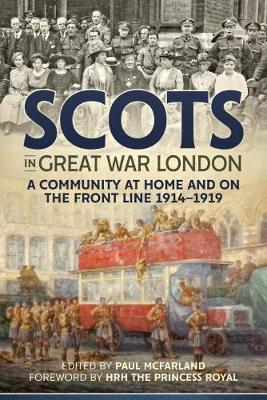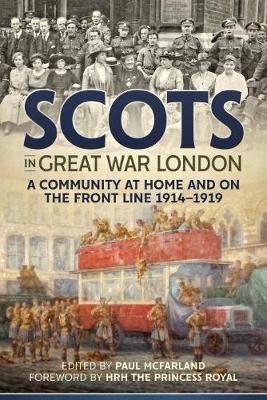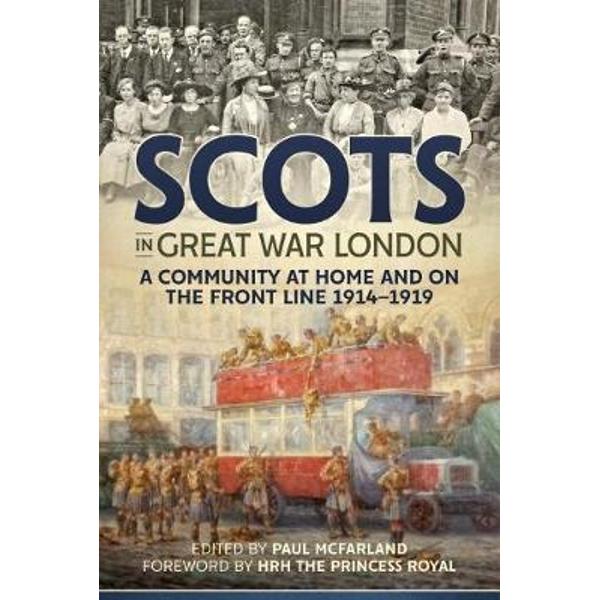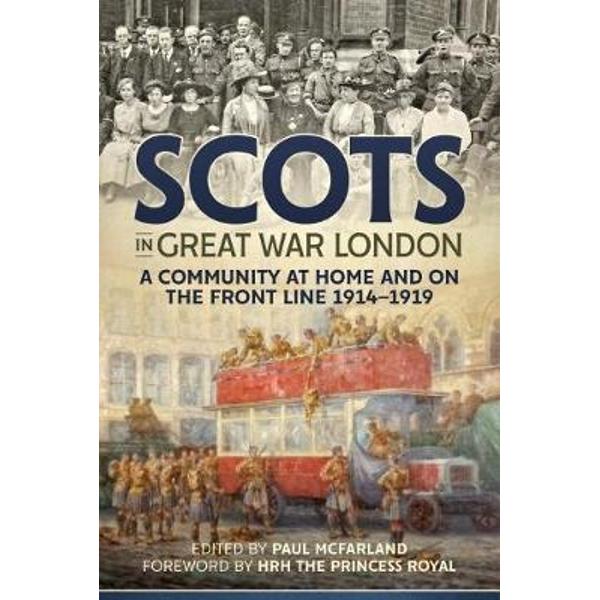Scots in Great War London
Scots in Great War London
Rugby players from London Scottish were quick to join up. More than two thirds of the sixty who turned out for the club in the last season before the war never returned. There was a heavy toll amongst Scots in London who were members of the Caledonian Club. The Club's substantial art collection immortalises its connection to the Great War, some of which is reproduced in the book. Many members and associates of Scottish churches and clubs were quick to join the London Scottish Regiment on the outbreak of war. They became the first territorials to see action after being rushed to the frontline close to Ypres in October 1914. The Scots Guards, too, had longstanding links with the capital. Scottish exiles in Canada joining their local regiments were pleased to remember their roots and traditions as they moved through wartime London.
Charities founded by Scottish benefactors in London, which have since evolved into Scots Care and the Royal Caledonian Educational Trust, supported the troops and families and their role is covered.
One hundred years on from the final year of conflict this book examines the close links between these organisations and their shared hopes, fears and tragic losses. Scotland's casualties in World War One were disproportionately higher than other parts of the UK. The book reflects how that toll was reflected south of the border in London, through which so many Sco
143.64Lei
143.64Lei
Livrare in 2-4 saptamani
Descrierea produsului
Rugby players from London Scottish were quick to join up. More than two thirds of the sixty who turned out for the club in the last season before the war never returned. There was a heavy toll amongst Scots in London who were members of the Caledonian Club. The Club's substantial art collection immortalises its connection to the Great War, some of which is reproduced in the book. Many members and associates of Scottish churches and clubs were quick to join the London Scottish Regiment on the outbreak of war. They became the first territorials to see action after being rushed to the frontline close to Ypres in October 1914. The Scots Guards, too, had longstanding links with the capital. Scottish exiles in Canada joining their local regiments were pleased to remember their roots and traditions as they moved through wartime London.
Charities founded by Scottish benefactors in London, which have since evolved into Scots Care and the Royal Caledonian Educational Trust, supported the troops and families and their role is covered.
One hundred years on from the final year of conflict this book examines the close links between these organisations and their shared hopes, fears and tragic losses. Scotland's casualties in World War One were disproportionately higher than other parts of the UK. The book reflects how that toll was reflected south of the border in London, through which so many Sco
Detaliile produsului














